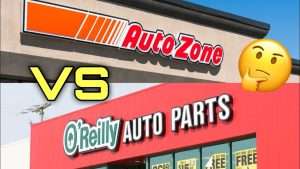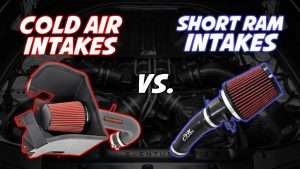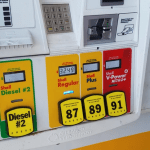As we step into the world of Ford’s formidable Tremor lineup, it’s essential to begin with the latest updates on both the 7.3-liter gas engine and the 6.7-liter diesel engine.
These two powerhouses have seen advancements that elevate the driving experience, but the question remains: which one is the better choice for your needs?
Table of Contents
Ford 7.3 Gas vs. 6.7 Diesel: Engine Performance
Let’s first look at the latest updates for both engines:
7.3 Gas Engine (Gasser):
- Ford has continued to refine the 7.3-liter V8 engine, making it even more robust and reliable.
- The latest models benefit from enhanced electronic controls, improving overall performance.
- Ford engineers have focused on optimizing power delivery, especially in the lower RPM range.

6.7 Diesel Engine:
- The 6.7-liter Power Stroke diesel engine has seen significant improvements in recent years.
- Enhanced turbocharging and fuel injection systems have resulted in better power and efficiency.
- Advanced emission control technologies have been integrated to meet stricter environmental standards.
Now, armed with knowledge of the latest updates, let’s delve deep into a comprehensive comparison of these engines, covering various aspects that will help you make an informed decision.
Power and Torque
7.3 Gas Engine:
- Provides ample power with 430 horsepower.
- Develops 475 lb-ft of torque at 4,000 RPM.
6.7 Diesel Engine:
- Boasts impressive power with 475 horsepower.
- Generates a massive 1,050 lb-ft of torque at lower RPMs, enhancing towing performance.
Fuel Tank Size Comparison
Fuel tank sizes can vary depending on the specific model and trim level of the vehicle.
| Engine Type | Fuel Tank Capacity (Gallons) (Approximate) |
|---|---|
| Ford 7.3 Gas | 28 to 48 gallons |
| Ford 6.7 Diesel | 26 to 48 gallons |
Please note: That these are approximate ranges, and the actual fuel tank size can vary depending on the specific model, trim level, and model year of the Ford vehicle.
For the most accurate and up-to-date information, I recommend checking the official Ford website or consulting the owner’s manual for the specific vehicle you’re interested in.
Ford 7.3 vs 6.7 Gas Mileage
7.3 Gas Engine:
- Gas engines typically have lower fuel efficiency compared to diesel engines.
- Expect around 14-16 mpg in city driving and 17-20 mpg on the highway.
6.7 Diesel Engine:
- Diesel engines generally provide better fuel efficiency, especially when towing.
- You can expect approximately 17-19 mpg in the city and 20-23 mpg on the highway.
Towing Capacity
When it comes to towing, both engines are capable, but the diesel engine has a clear advantage for heavier loads, especially in challenging terrain.
| Engine | Towing Capacity |
|---|---|
| 7.3 Gas | Up to 15,000 lbs |
| 6.7 Diesel | Up to 24,200 lbs |
Longevity and Reliability
The longevity of these engines is a point of contention due to the evolving technology in modern diesel engines.
- 7.3 Gas Engine: Known for its reliability, and if well-maintained, it has the potential to last for many years.
- 6.7 Diesel Engine: Newer emissions equipment and complex systems may raise concerns about long-term reliability and repair costs.
Durability
When considering engine durability, it’s essential to weigh the differences in design and technology.
7.3 Gas Engine:
- Known for its durability and simplicity.
- Potential for a longer lifespan, especially when well-maintained.
6.7 Diesel Engine:
- Equipped with modern emissions equipment and complex systems.
- Durability may be impacted by the intricacies of emissions components.
Common Problems
Understanding potential issues with each engine can be crucial for long-term ownership.
7.3 Gas Engine:
- Fewer reported common problems due to its simpler design.
- Routine maintenance, such as oil changes and basic upkeep, is typically sufficient.
6.7 Diesel Engine:
- Some owners have reported issues related to emissions components, such as the Diesel Particulate Filter (DPF) and Exhaust Gas Recirculation (EGR) system.
- Repair costs for emissions-related problems can be significant.
Pros and Cons
Pros of the 7.3 Gas Engine:
- Reliability and simplicity.
- Lower initial cost compared to diesel.
- Adequate towing capacity for most users.
- Easier and potentially cheaper maintenance.
Cons of the 7.3 Gas Engine:
- Lower fuel efficiency than diesel.
- May struggle with very heavy loads or extreme towing scenarios.
Pros of the 6.7 Diesel Engine:
- Superior towing capability, ideal for heavy loads.
- Better fuel efficiency, especially when towing.
- High torque at low RPMs.
Cons of the 6.7 Diesel Engine:
- Higher upfront cost due to the complexity of diesel technology.
- Potential for expensive repairs, particularly related to emissions systems.
- Diesel fuel may not be as readily available as gasoline.
Resale Value
Diesel engines often have better resale value due to their reputation for durability and towing capability.
Ford 6.7 Diesel trucks generally have better resale value compared to Ford 7.3 Gas trucks.
Reasons for higher resale value include:
- Diesel engine reputation for durability.
- Strong towing and hauling capabilities.
- Better fuel efficiency.
- Lower maintenance costs.
- Longer lifespan.
Resale values can vary based on specific models, trim levels, and local market demand. For the most current information, consult pricing guides and local dealerships.
Decision: Which Engine Is Best for You?
The choice between the 7.3 gas engine and the 6.7 diesel engine ultimately depends on your specific needs and preferences.
- Choose the 7.3 Gas Engine If:
- You have a limited towing frequency and don’t require maximum towing capacity.
- Budget is a primary concern.
- You prioritize simplicity and lower maintenance costs.
- Most of your driving consists of short trips.
- Choose the 6.7 Diesel Engine If:
- You frequently tow heavy loads, especially in challenging terrain.
- Fuel efficiency and torque are essential for your driving needs.
- You are comfortable with the higher upfront cost and potential repair expenses.
- You plan on doing long trips and accumulating high mileage.
- Resale value is a significant consideration.
In the end, both engines have their merits, and there’s no one-size-fits-all answer. It’s crucial to evaluate your towing habits, budget, and long-term plans before making your decision.
Whether you go for the robust 7.3 gas engine or the powerhouse 6.7 diesel, the Ford Tremor offers capable performance to meet your needs and preferences.
Remember to consider the power, durability, common problems, fuel tank size, load size, speed, and other factors that matter most to you when making your choice.
Your Tremor awaits, tailored to your driving style and ambitions.








